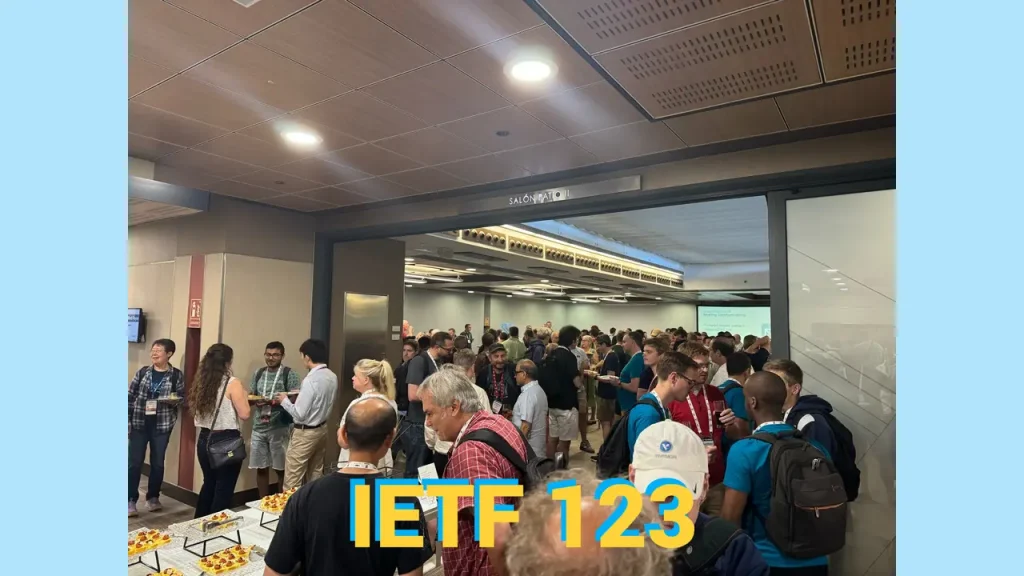- The 20–21 July hackathon delivered real progress on DNS privacy, YANG tools, QUIC transport, and IPv6 testing.
- Side meetings and working groups are now active through 25 July at the Meliá Castilla Hotel & Convention Center.
What happened: Hackathon wraps up with live testing
The ietf 123 meeting is now four days in, running from 19 to 25 July at the Meliá Castilla Hotel & Convention Center in Madrid. A major early milestone was the ietf hackathon, held 20–21 July, which brought together developers and researchers to implement and test protocols under active development.
Participants worked across multiple areas including DNS over HTTPS (DoH), DNS over QUIC (DoQ), YANG module validation, QUIC performance, and IPv6 segment routing. The yang catalog team focused on improving metadata validation tools, while others explored encrypted DNS resolver discovery and developed telemetry mechanisms using YANG Push. All projects are listed on the hackathon wiki, with code contributions now circulating back to relevant working groups.
Alongside formal sessions, dozens of side meetings are being organised using an open Trello board. Topics include zero-touch provisioning, routing security, and identity management, offering space for informal technical exploration throughout the week.
Also read: IETF 123: Boosts protocols with hackathon and sprint
Also read: IETF highlights technical community’s role of internet governance
Why this is important
The completed hackathon is already shaping ietf 123’s agenda. By testing early-stage protocol drafts in real environments, participants identified edge cases, implementation barriers, and interoperability gaps. This kind of live validation helps move standards forward faster and ensures that proposals are deployable in real-world conditions.
Equally significant is the structure of ietf 123 itself. In addition to scheduled working groups, the rise of self-organised side meetings reflects a more decentralised and participatory approach to standards development. These smaller sessions allow for faster iteration and inclusion of contributors who may not speak during formal agenda time.
With working groups and plenaries continuing through 25 July, key topics still to come include transport security, configuration automation, and cross-layer network architecture. The week ahead is expected to build directly on hackathon outcomes and deepen consensus on several high-impact drafts.

